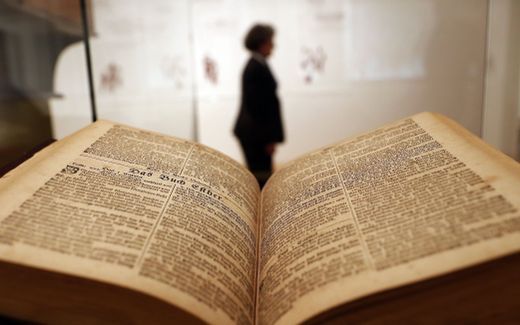In Tecklenburg (Germany), even the houses testify of God
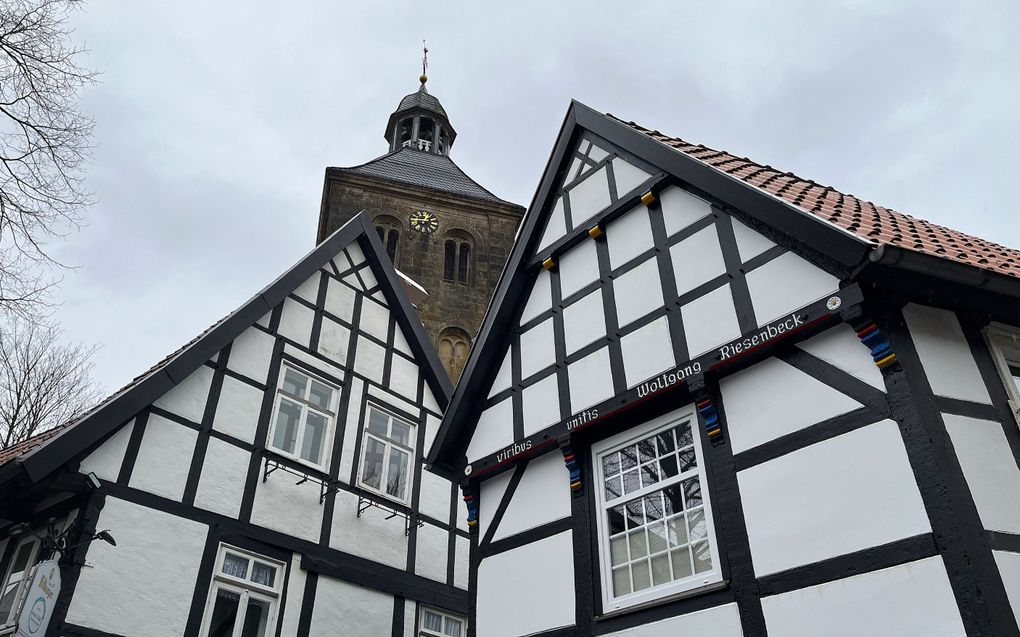
Tecklenburg has an impressive old centre with a remarkable church steeple. Photo CNE, Evert van Vlastuin
Central Europe
“An Gottes Segen, ist alles gelegen” (Everything depends on God's blessing). When walking through one of the best-preserved medieval towns of Germany, you come across this saying. Or: “Wer auf Gott vertrawt, der hat woll gebowt” (Who trusts in God, acts wisely). Where do these religious texts come from?
Stay up to date with Christian news in Europe? Sign up for CNE's newsletter.
In the old town of Tecklenburg, you enter another era. In the 12th century, a nobleman from the Saarland converted the wooden castle here into a stone castle. He then called himself Count of Tecklenburg.
This old trade route from Bremen to Cologne was a good place to live. His family lived off the tolls levied and stayed here for several centuries. The castle disappeared, but the community around the market and the church remained. Tecklenburg (in the west of the country) is still one of the best-preserved towns with medieval half-timbered houses.
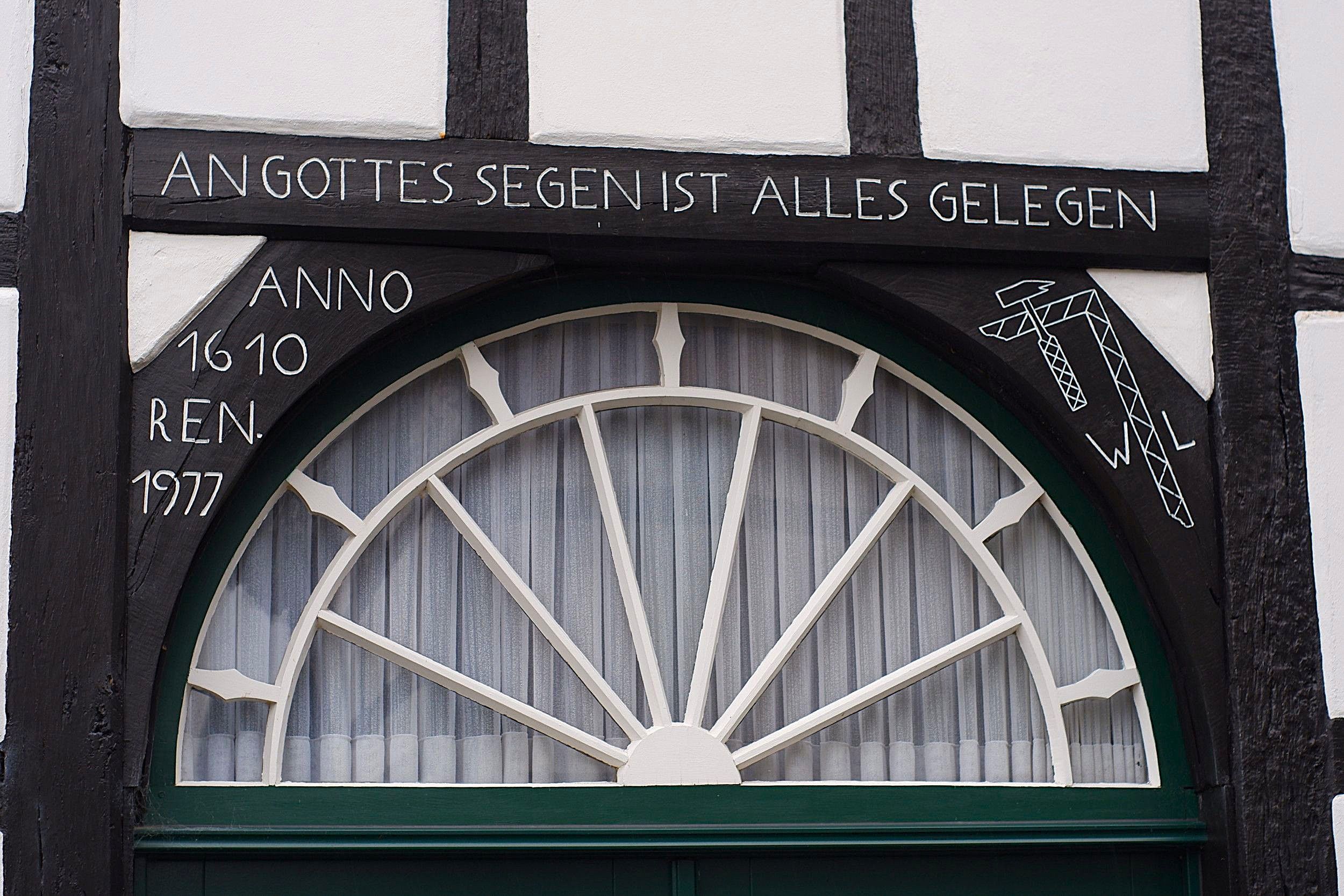
Tecklenburg’s old town is tiny, by the way. Most of it would fit in if you were to pick it up and put it down on Dam Square in Amsterdam. But that small plot does contain some 45 half-timbered houses from the 16th and 17th centuries around a characteristic market with an old entrance gate.
Of those 45 half-timbered houses, 32 have a motto in the gable beam.
They are all documented in the brochure “Hausinschriften im Stadtgebiet von Tecklenburg”, which the bookshop sells at the market (only in German, but still valuable). All but a few of the proverbs have a Christian meaning.
Touring the proverbs
A short walk provides some more clarity. It starts at the market square. Renovated in 1948, Hotel Drei Kronen has an elaborate text in modern German on its long gable beam. It ends with an admonition: “Keinen Menschen hassen und die Zukunft Gott überlassen” (Hate no man and leave the future to God). Opposite is a little shop rebuilt in 1978 with a saying in Latin: “Credo quia absurdum” (I believe because it is incomprehensible).
Opposite Drei Kronen, we turn into Ibbenbürener Strasse. The majority of proverbs can be found on this street. It is immediately noticeable that most texts here have much older spelling.
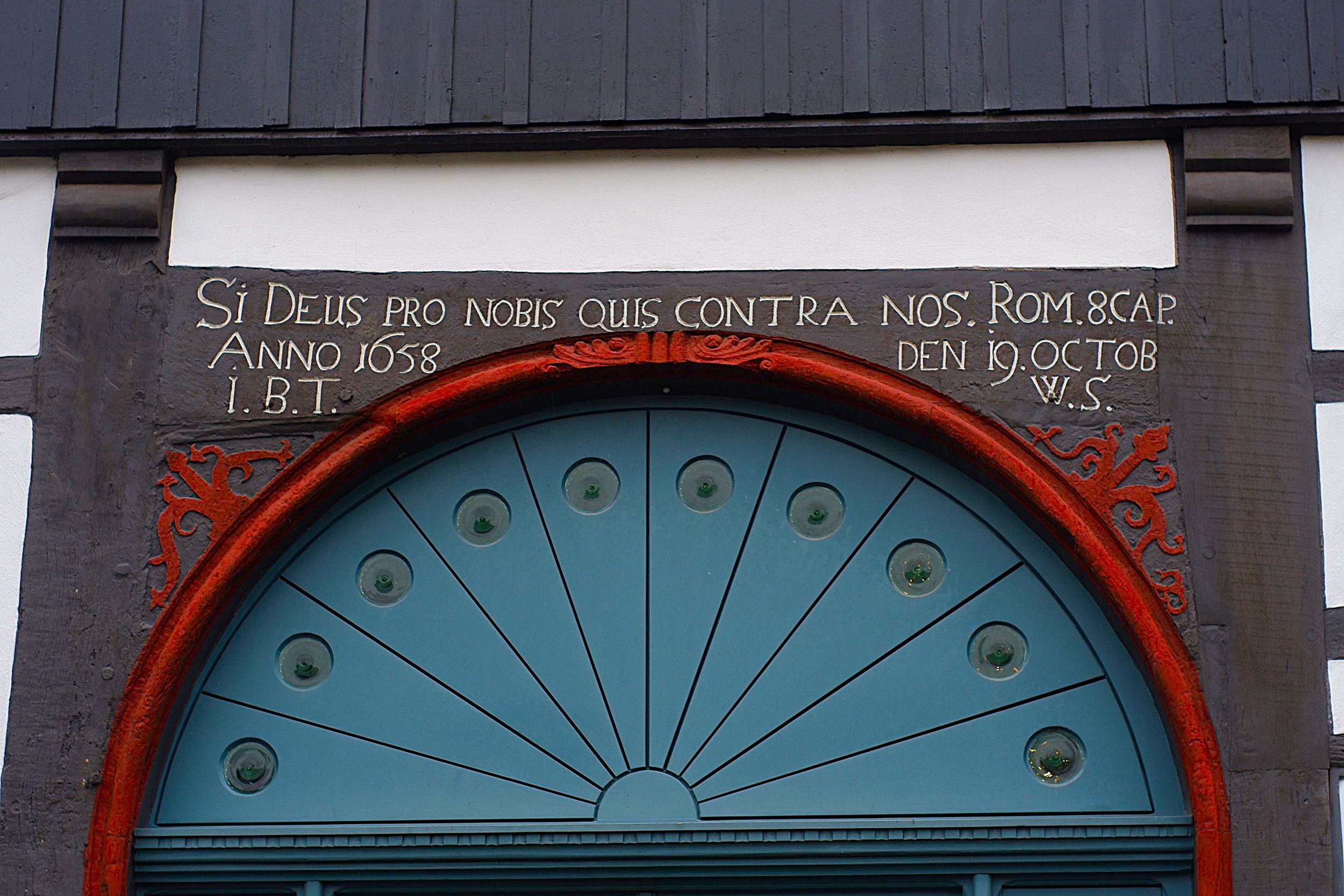
The houses here are still original and have not yet been renovated. Sometimes, it takes effort to read the text correctly, like this one, for example: “Wol vp Gott vortvwet de hat wol gebowet” (Who trusts in God, acts wisely). Even Germans would find this a bit difficult.
For the Lord
A bit further, every passer-by can read: ”Befiehl dem Herrn deine Wege; und hoffe auf Ihn. Er wird’s wohl machen” (Commit thy way unto the Lord; and hope in Him. He will make it well). And another builder chose for the text: "Herr lehre mich thun nach deinem Wohlgefallen, den du bist mein Gott, dein guter Geist fuhre mich auff ebener Bahn” (Lord teach me to do according to your good pleasure, for you are my God, your good spirit guides me on a level path).
In 1658, someone chose a Latin proverb: “Si Deus pro nobis quis contra nos” (If God is for us, who would be against us?). It is one of the few literal quotations from the Bible. The finding place is added: “Rom. 8 cap”. Three years earlier (1655), it was also used a few streets away.
On Ibbenbürener Strasse, the count’s French tailor also lived. He wrote his motto in his own language: “Dieu est mon loier” (God is my Lord).
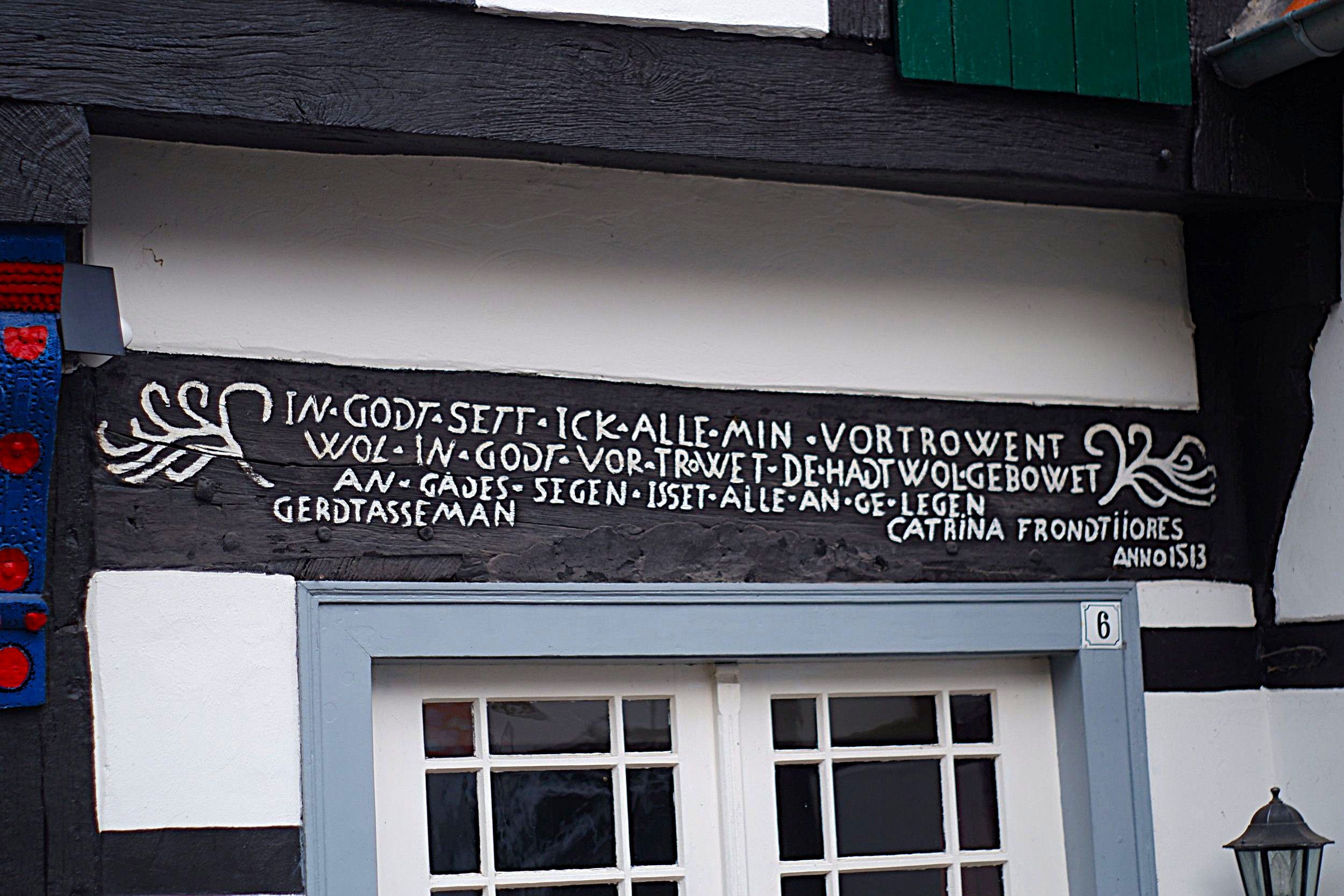
The short Brauerstrasse is the location of Tecklenburg’s oldest house, dating from 1513. Chiselled in fairly small letters in the beam above the door is “In Godt sete ick alle min Vertrowent wol. In Godt vertrowet, de hadt wol gebowet. An Gades Segen isset alle angelegen” (In God, I put all my trust. Who trusts in God, acts wisely. All depends on God’s blessing).
Interestingly, almost all proverbs differ from each other. Only a few occur several times. Apparently, it was important to give each house its own text.
Looking upwards
Why the Tecklenburgers placed so many spiritual sayings on their houses is not clear, says Frank Bosse of the Geschichts- und Heimatsverein Tecklenburg. “In any case, it shows the direction of people’s gaze: they were looking upwards.”
Bosse opens the door of the small house his historical association bought a few years ago, just behind the market. This facade, too, has a Latin saying: “Absit strages domui tutante triuno”. Bosse: “People put themselves under the protection of the Triune God. That seems to be the way people lived here.”
Facade slogans were not unique to Tecklenburg. “In other places, you often see people focusing on their own wealth. But in Tecklenburg, you see more dependence; the house and the family have to be protected from above.”
Local church history may play a role in this. Bosse shows the book "500 Jahre Reformation im Tecklenburger Land" (500 years of Reformation in Tecklenburg’s area). “The count and his house switched to Lutheran doctrine as early as 1523, as the first county in Westphalia. We do not know exactly why and how this happened. Perhaps he did it out of conviction and was influenced by family, for example. Another possibility is that he saw Luther’s departure from indulgences as a way to stop the outflow of money to Rome. He wanted the money to stay in his own county or perhaps be remitted to himself as taxes.”
Related Articles




